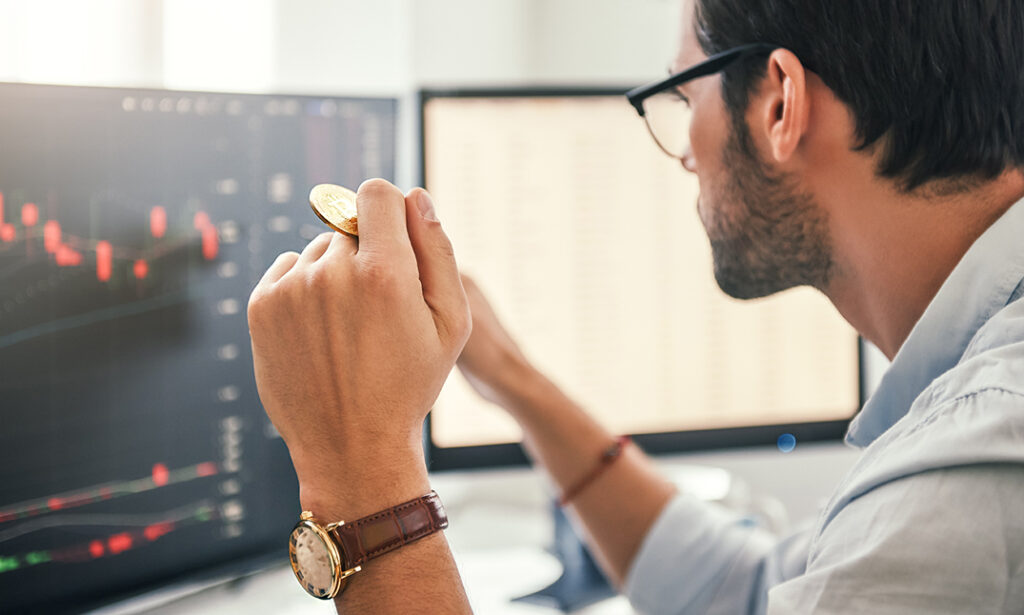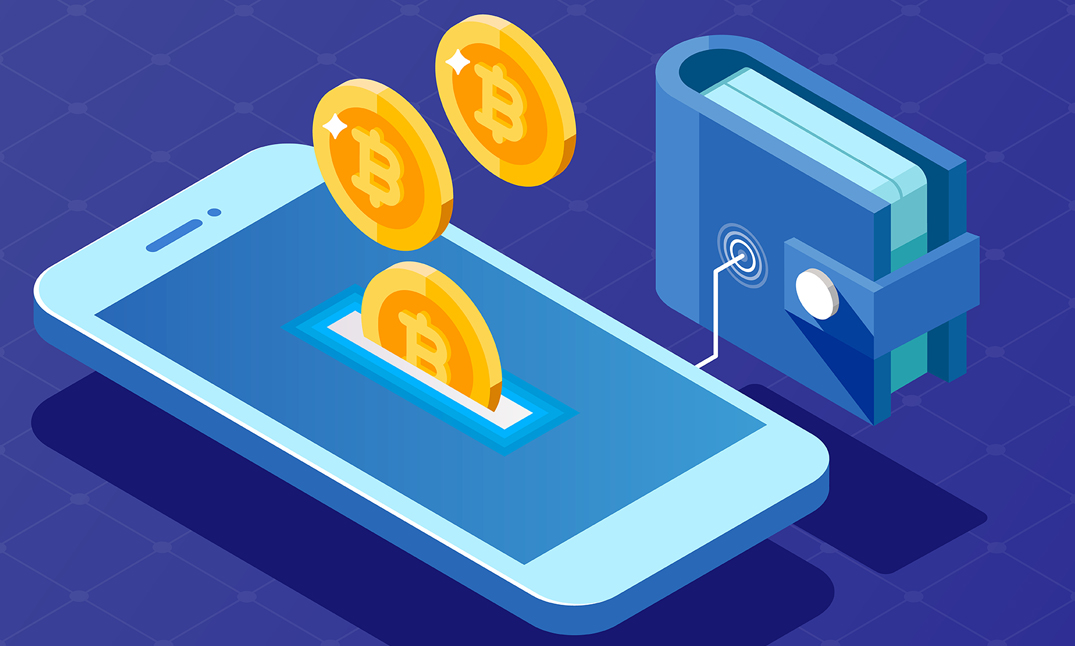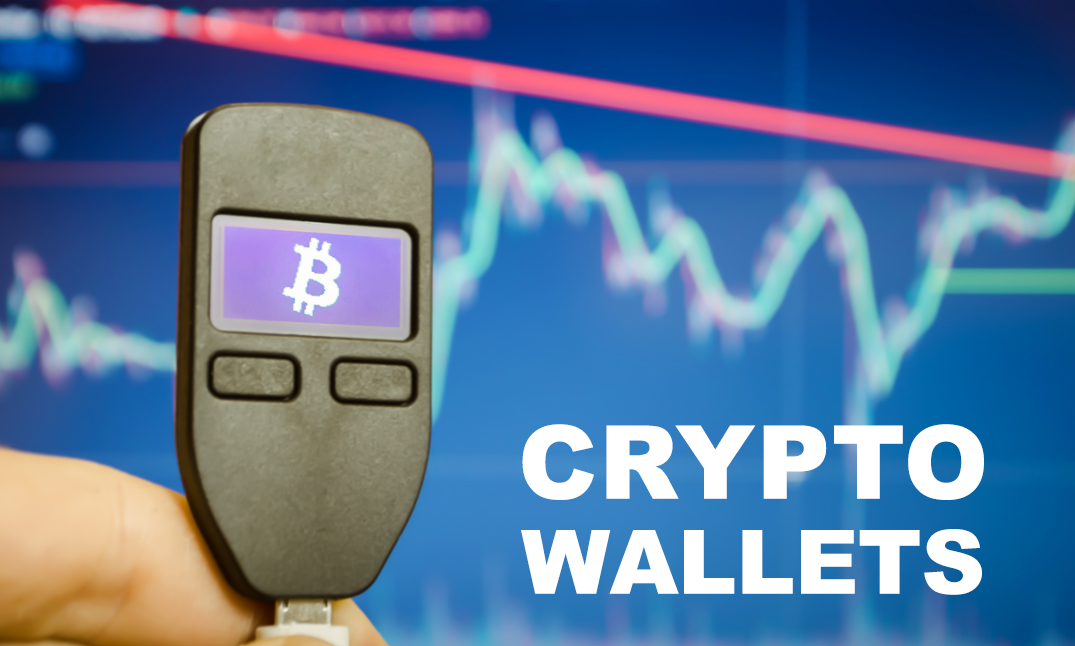What Do I Need to Know Before Buying Crypto as a New Investor?
At a time when our economy is pretty rocky, and the cost of inflation is greatly impacting our livelihoods, many people are seeking out smart ways to improve and protect their financial situation. This is where cryptocurrency enters the scene, shining a new light on investment opportunities that are outside the scope of traditional government-affiliated investment vehicles.
This, and more, presents a common question among those who would like to start their investment journey in this sector:
What do I need to know before buying crypto? You should have a general idea of what cryptocurrency is and how it works, be aware of your risk tolerance, identify which coins are wise investments, and settle on a crypto exchange that fits your needs. It’s essential to also know how to safeguard your funds, as well as have a grasp on technical analysis for price predictions, and most importantly, know that crypto is taxed as property.
Now, let’s dive in and break down all the elements pertaining to this question and answer, so you’ll be well-equipped to jump on the crypto bandwagon.
1. Start with Gaining a Basic Understanding of Cryptocurrency
You’ve heard the saying, “knowledge is power”. Well, it’s true, and being informed will certainly help you grow into a seasoned investor. With that in mind, it’s a good idea to have a basic understanding of what you’re investing in, and cryptocurrency is no exception. So, let’s go over a few of the basics:
What is Cryptocurrency?
Cryptocurrency is what’s referred to as digital currency, although some feel it’s not currency at all, but instead should be viewed as property. Either way, these digital assets are often called virtual coins, and are what individuals and businesses invest in as a store of value, as well as use as a form of payment for goods and services. These virtual assets can be traded on crypto exchanges in the same fashion a company stock would be bought and sold.
The difference is that crypto is not created, dispersed, or controlled by the government, the big banking system, large corporations, or any other third party. This makes it decentralized, setting it apart from the traditional investment avenues we have been forced to utilize because, well, that’s mostly what was available and easily accessible. Additionally, what makes it possible for cryptocurrency to stand out from the U.S. dollar and investments that are associated with Wall Street is the technology behind it, specifically, blockchain.
What is Blockchain Technology?
Blockchain technology is the driving force behind crypto; it’s what allows it to be decentralized, as well as enables transactions to take place in a transparent manner.

A blockchain is a type of digital distributed ledger of transactions that’s verified by being cross-referenced, timestamped, and encrypted, making the data from a transaction unchangeable, tamper-proof, reliable, and secure. The blockchain holds a record of all your crypto transactions – what type of coins and how many are assigned to your crypto wallet, and so on.
Now that you have a general understanding of cryptocurrency, let’s take a look at a few other things that would be good to know as a new investor:
2. Know Your Financial Risk Tolerance Before Buying Crypto
In a time when gas prices are skyrocketing, and grocery costs are on an upward trend, the last thing you would want to do is lose a great deal of money investing. Plus, it’s best to ensure that you always have enough money for your basic expenses such as rent, utilities, and the like. I know this might sound obvious, but believe me, there are many people out there who have been swept up in the excitement of buying and selling Bitcoin and various altcoins, investing more money than they could afford, only to see the coin prices drastically drop, along with their account balances.
To avoid this scenario, and to buy crypto responsively, I recommend doing a few calculations to determine how much money you can safely invest each month. I put together an article on how to come up with a number that fits your budget. Take a moment to read it over – How Much Should I Invest in Cryptocurrency as a Beginner?
3. Have a Good Idea of Which Digital Currencies You Should Consider
Those buying cryptocurrency for the first time may think that the selection process simply involves choosing crypto that’s on an upward trend. Of course, an upward trend is a good thing if you can jump in at the right time, but it’s hardly the only reason to make a sound investment decision based on it.
This is where due diligence comes into play and the research begins. But first, I’d like to mention that if you’d like to buy a small amount of crypto to get started without doing extensive research on specific coins, with plans to dive into the research later, your best bet would be to check out the coins by market cap and choose from the top 10.
For those who would like to start researching your initial cryptocurrency picks, you’re probably wondering what’s the best way to go about it. So, let’s take a look at some strategies for learning more about a particular digital asset to see if it’s investment-worthy:
Dive into Cryptocurrency White Papers
Typically, when a cryptocurrency is created, a corresponding white paper will be available for investors to read. A white paper such as this will contain essential details pertaining to the digital asset, more specifically, the technology behind it, its purpose, its vision for the future, and more. Combing through a cryptocurrency’s white paper is a great place to start your research on virtual coins that you’re interested in. As an example, take a look at Ethereum’s white paper.
The Team Behind a Crypto Coin
Some may not think to look behind the curtain to see who is actually running the show behind a particular crypto coin, but it’s really a good idea to do so. Why? Because the team has the power to direct a cryptocurrency project in such a way that great things are achieved, or they can drive it out of existence with poor decisions.
You can normally locate the names of the team members by going directly to a cryptocurrency’s website. You’ll then be able to do your own research on the internet to determine how experienced their developers are, what successful projects they’ve been a part of, conclude if they’re qualified to successfully tackle major issues that may arise, and so on.
Project / Use Case
What is a coin’s use beyond a store of value or a means of purchase – does its intended purpose meet a need or fill a gap? Does it appear to outdo its competitors on some level?
There are several exciting crypto projects out there that were designed to meet certain needs or solve various issues pertaining to things such as lending and borrowing, asset tokenization, gaming, fast and secure payments, privacy, auto-execution through smart contracts, as well as blockchain projects that are working towards providing a more sustainable ecosystem for cryptocurrencies, and more.
If you’re brand new to the world of cryptocurrency, you may find it very interesting when you start reading about the diverse uses and possibilities of crypto and blockchain technologies. For example, it has worked it’s way into the real estate sector, as seen in this interesting article: How Real Estate Purchases are Being Transformed by the Benefits of Blockchain Technology.
A purposeful and innovative use case can define a crypto asset and its corresponding blockchain technology, and therefore set it apart from the rest as a quality investment.
Which Cryptocurrency Should I Buy?
I’m not a financial advisor, but for those who want to know as much as possible before buying crypto, I can pass along some information on my personal picks and why I favor them, with the hopes that it will get the ball rolling for you:

Bitcoin (BTC)
I feel it’s always a good idea to have some Bitcoin in your portfolio. After all, it’s the original cryptocurrency and a great store of value. But besides those obvious upsides, there are indicators that point towards exponential growth for Bitcoin. This includes the fact that a number of larger investors are jumping in, major businesses, as well as governments are buying up BTC, and it’s been declared as legal tender by El Salvador. All this shows that Bitcoin is being taken seriously and will most likely work its way into even more impressive scenarios.
Ether (ETH)
I touched on investment-worthy use cases, and I feel that ETH, along with its corresponding blockchain Ethereum, is one that is a prime example. Ethereum is widely known for its ecosystem that supports smart contracts (self-executing contracts) that can greatly limit the use of third parties such as attorneys, banks, and the like. Also, many DeFi applications are built on its network, and the Ethereum blockchain was one of the first to successfully support NFTs. As you can see, Ethereum, and its native coin ETH have a forward-thinking team that’s been pushing the envelope to make it the second-largest cryptocurrency by market cap.
On another note, you may have heard that Ethereum has been slow to reach its 2.0 phase, and they are bogged down with congestion and high gas fees. Despite this, I personally feel it’s worth investing in Ethereum because it’s slowly but surely working its way through these issues – and just picture for a moment how dominant Ethereum will be once it gets past these hurdles.
Cardano (ADA)
ADA has been in the top ten list by market cap for enough time to realize that it’s going places. One element that brings its blockchain platform to the top is the fact that it utilizes a proof-of-stake protocol that allows it to operate without high energy costs. Its focus is to create a balanced and sustainable cryptocurrency ecosystem using a scientific and research-based approach.
While many cryptocurrencies are adding a burden to the environment, Cardano utilizes methods that are considered to be the most eco-friendly. This applies not only to its crypto processes, but also to the people running the show, and this has been made clear by the fact that the Cardano (ADA) Foundation has committed to planting 1 million trees. These are the things that set the simple crypto coins/blockchains apart from the ones that are making a difference and getting noticed – with that can come a rise in value over time.
Solona (SOL)
Solona has been gaining the attention of many investors due to its ability to achieve super-fast transaction processing speeds at a fraction of the cost. This has caused it to be labeled the “Visa of the digital asset ecosystem” by Bank of America. The team over at Solona is currently pushing its technology to increase its speed even further, which will give SOL more investment appeal.
Designed to help fuel decentralized finance uses, decentralized applications, as well as smart contracts, Solana operates on both proof-of-stake and proof-of-history systems that provide for transactions that are incredibly fast and secure.
Cronos (CRO)
Crypto.com, with its native coin CRO, is showing huge potential, and I’ve personally invested a large chunk of change into this coin. Why do I have faith in CRO? Because it’s backed by a real company with a solid foundation that offers a successful, multipurpose crypto platform that already has 10 million users – this company is not going to fold any time soon.
Its mission is to “accelerate the world’s transition to cryptocurrency”, and with the crypto sector experiencing mass adoption right now, they will certainly be able to meet a need. Additionally, with its 700-million-dollar deal where they bought the naming rights to the Los Angeles Staple Center, they appear to not only have the funds to fuel their brand, but also the ambition to push the company and its crypto coin to new heights. With all that said, I’m impressed with what I’ve seen this company do, so I’m all in when it comes to CRO.
This was just a short list of crypto coins that I’m interested in. To add to it, I also find Polkadot (DOT) and Internet Computer (ICP) attractive for various reasons. No matter which crypto coins you find yourself gravitating towards, be sure to do extensive research before investing your hard-earned money.
4. Determine Which Crypto Exchange Fits Your Investing Goals
There are several exchanges you should look into before settling on one and buying crypto. I’ve utilized a few platforms throughout the years, and I have my favorites. As for the recommendations I give to others, I typically suggest the international version of Binance, which offers a wide variety of top crypto coins and small-cap coins. However, if you’re living in the U.S., know that you will not be able to trade on this version of Binance. Although, it’s widely known that many people utilize a VPN to get around this. If you decide to also, please be sure to read their terms of services before making a decision to do so.
For those living in the U.S. that prefer to trade on a platform without using a VPN, I highly recommend Coinbase or Crypto.com. Although you may not have access to as many coins with their U.S. trading options, there are still a lot to choose from, and both platforms are highly secure, as well as easy to navigate.
5. Know How to Safeguard Your Cryptocurrency
Not only will you want to get situated on a secure exchange, but you will also want to add an additional layer of protection by safeguarding your digital assets with a crypto wallet. This is an important piece of information for those asking, “What do I need to know before buying crypto?”. Why is this the case? Because although the exchange you use may be highly secure, your funds are online and therefore could be at risk if the exchange were to be hacked.
If you’ve been following the news as to what’s going on with the trucker freedom convoy in Canada, you may have heard that there was talk of the government seizing crypto accounts that contained donated funds (as well as bank accounts). Although you may not be the recipient of a Bitcoin donation such as this, I only mention it to stress the point that your crypto is not completely safe unless you hold the private keys to it. For instance, if your funds were placed in a wallet, specifically a hardware crypto wallet, where it’s offline, and only you have access to the private keys, there would be no way for anyone to hack your funds, and it wouldn’t be accessible for any government to seize it.
With all that in mind, I suggest looking into one of my personal favorites, which is the Ledger Nano X Hardware Wallet. If you’d like to consider a few other wallets, you’ll be interested in this post that I put together on the best Crypto Wallet Suggestions for 2022.
6. It’s Recommended That You Have a General Understanding of Technical Analysis
Before you buy crypto, or not too long after, you should consider learning the ins and outs of reading crypto price pattern charts. When you master being able to recognize certain patterns that predict where a digital coin may be headed, you will then be able to make wise investment decisions, as opposed to blindly buying and selling.
You can learn the art of technical analysis to spot obvious investment trends with this book from Amazon that I have personally read a few times – Technical Analysis for Dummies. It will provide you with the knowhow to spot a pattern that’s about to break out and surge, like the example below:
7. Before Buying, Selling, or Receiving Crypto – Know that it’s Taxed as Property
Besides losing money in a bad trade, one of the biggest losses you could have would be to buy and sell crypto, or use it to purchase items, only to find out later, come April 15th, that you owe the government big time because of it.
So, what do you need to know before buying crypto? You need to realize that the IRS classifies cryptocurrency as property, and it’s taxed accordingly. This means that crypto that was sold or exchanged, and resulted in a gain, or used to purchase goods or services, can be taxed. This also applies to crypto that you’ve received through mining and staking, and any cryptocurrencies you may have received as payment for services, and the like.
If you don’t report your cryptocurrency transactions to the IRS, there could be costly penalties or even criminal charges. Knowing this, it’s a good idea to keep a detailed account of all your crypto transactions so you’re well prepared to report any taxable events come tax time.
Before I wrap up the topic of cryptocurrency and taxes, I wanted to mention that you can actually buy and trade crypto, tax free, within a self-directed IRA account. However, you may be responsible for paying the taxes when the money is withdrawn during retirement, but that will depend on which type of IRA account you have. This can be done through AltoIRA. Their self-directed IRA crypto accounts are hooked up to Coinbase.com. I have an account with them, and I’m trading without worrying about being taxed, all while building wealth for my retirement years.
Buy and Trade Crypto with Confidence by Being Well Informed!
I hope that I’ve provided the bulk of what you would need to know before purchasing cryptocurrency. It should be enough to get you started and on the path to trading wisely and responsively. To keep reeling in the knowledge, I highly recommend diving into a crypto-based channel such as Crypto News Daily. You can check out this video below for a sneak peek.











